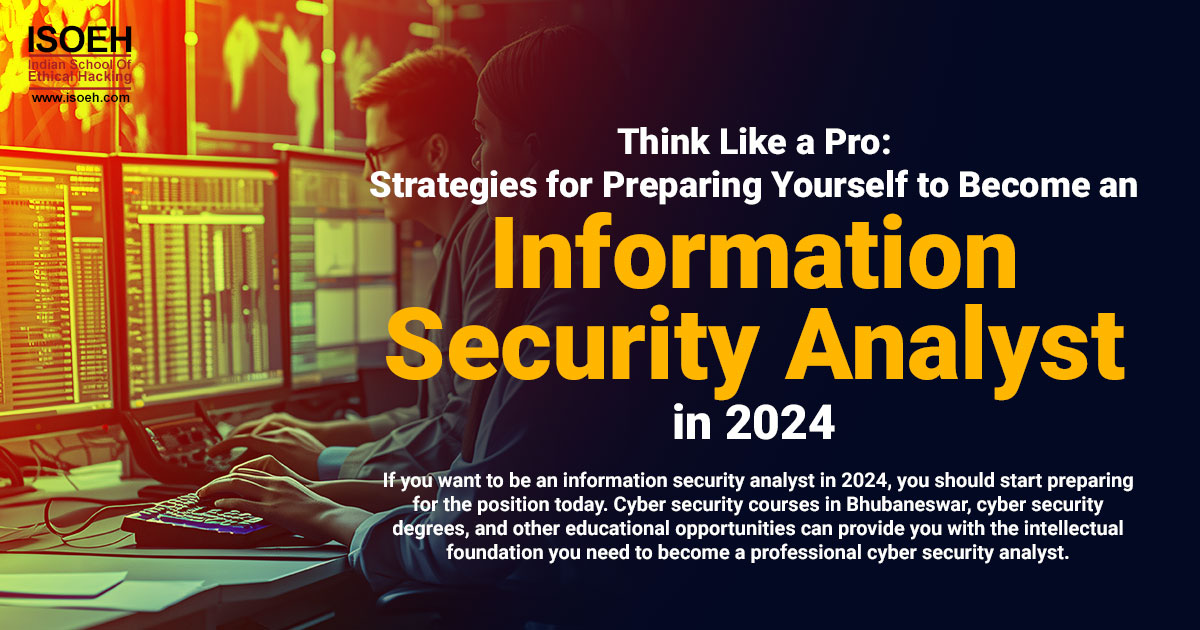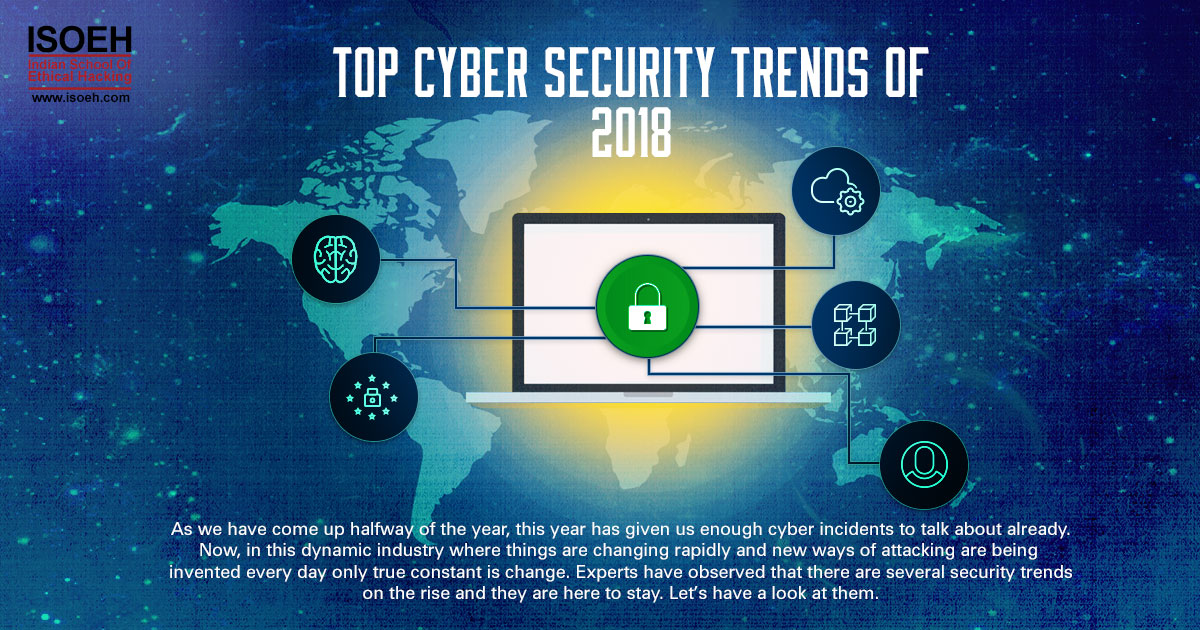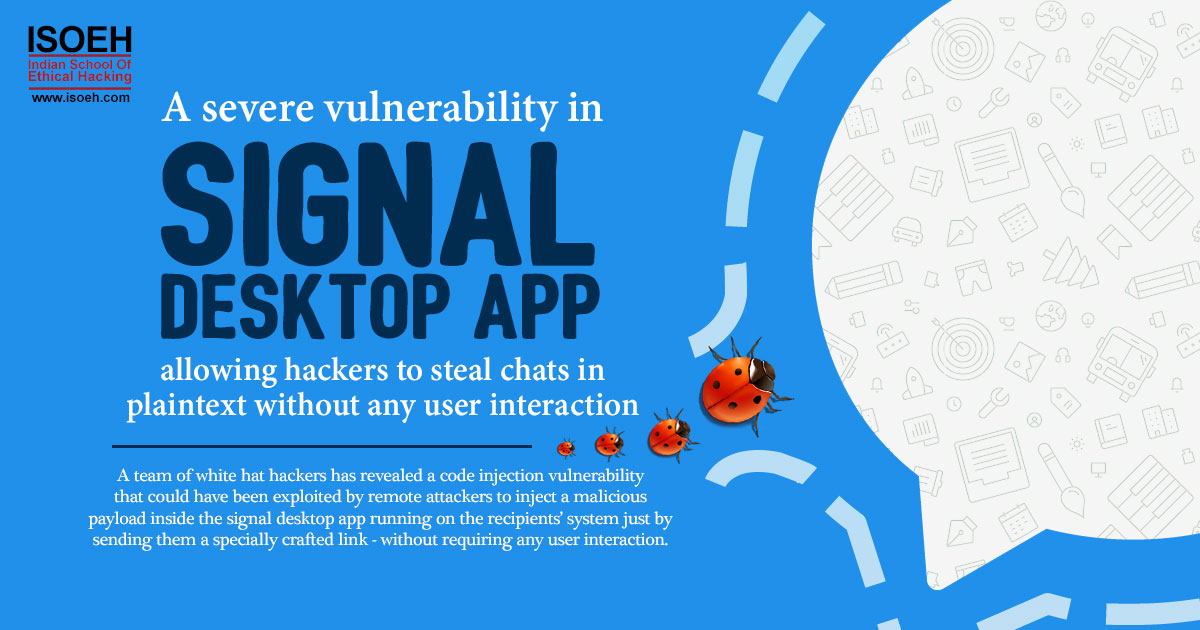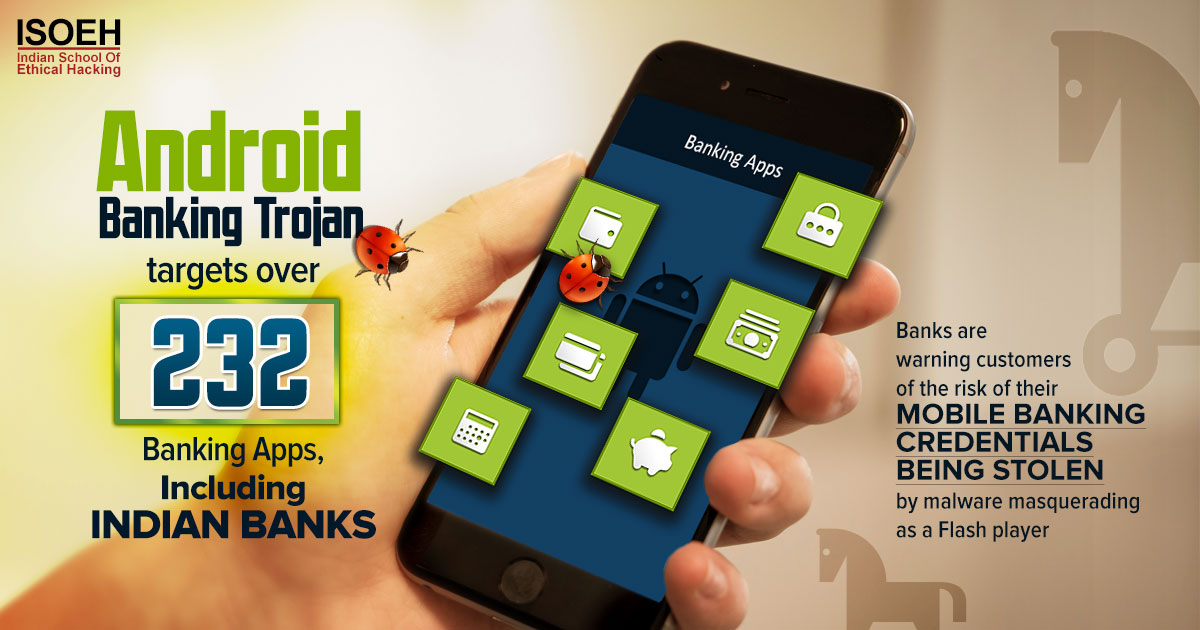
Contents
Introduction: Exploring the Role of an Information Security Analyst in 2024
The field of information security is changing and evolving all the time; as new technologies arise, so do new risks. Organisations must be proactive in training their workers to understand the latest tools and tactics for defending against cyber-attacks to stay ahead of the curve and secure their networks from assault.
This is particularly true for Information Security Analysts (ISAs), who are in charge of detecting, assessing, and responding to possible security risks. Information Security Analysts must be well-prepared to excel in this sector, given the rising complexity of network architecture and cybersecurity threats.
Students would often leave such courses with a thorough understanding of digital forensics, cryptography, vulnerability assessment, and other relevant topics. Hands-on simulations can also be included in courses to provide students with practical experience administering network security systems. Following completion of such training, aspiring ISAs should select an area of specialisation to become a Cyber Security Analyst. Malware analysis, intrusion detection/prevention systems, and application vulnerability assessment are popular areas of specialisation.
There are additional possibilities accessible for those who desire to become a Cyber Security Analyst but do not have access to official school programs or resources. Online learning platforms can be used to learn about many cybersecurity issues such as ethical hacking, penetration testing, and disaster recovery strategies.
The Benefits of Becoming an Information Security Analyst
In today's digital environment, becoming a cyber security analyst provides various advantages. It is simple to see why so many people are pursuing a cyber security course in Bhubaneswar or a cyber security diploma to become analysts. As the data-driven world becomes more complex, better ways of protecting information and assets from threats and malevolent actors are required.
Educational Requirements
If you want to work as an information security analyst, you must have a solid educational background in cyber security. You should prioritise courses in computer science or cybersecurity that will teach you valuable skills such as coding techniques, problem-solving approaches, network engineering principles, and much more.
Industry Certifications
It is critical that you receive industry certifications in the field of IT security; these will demonstrate your expertise in risk management and the use of proper technologies for protection against harmful assaults. Popular certifications include CISSP (Certified Information Systems Security Professional), CEH (Certified Ethical Hacker), and others that indicate your knowledge in various parts of cybersecurity while also assisting employers in determining your skills for the job role that they have available.
Gaining Experience
You can obtain experience by interning or volunteering at cybersecurity-related organisations. Alternatively, many hackathons are hosted throughout the world where individuals may develop their abilities in penetration testing and other similar areas - this type of real-world experience gives you an advantage when it comes to gaining work within the field. With an increasing demand for skilled individuals, having knowledge in IT security allows you to access lucrative career jobs with competitive wages all over the world while also making a big contribution to ensuring data integrity within organisations.
Soft Skills
Information Security Analysts require more than just technical knowledge to thrive; they must also have good soft skills. Analysts must be able to effectively convey security issues to non-technical colleagues and clients in order to develop confidence and understanding behind security initiatives. They must also have problem-solving abilities that enable them to spot possible threats and find effective solutions rapidly.
Stay Up-to-Date on Cyber Security Trends
To remain ahead of potential attacks, information security analysts must stay current with cybersecurity technological advances. Follow true news sources like Wired magazine or Dark Reading for updates on malware defence, cloud computing vulnerabilities, data privacy issues, and so on, so that your organization's systems remain secure against developing attacks.
Conclusion: Taking Steps Now to Prepare for a Career as an Information Security Analyst in 2024
If you want to be an information security analyst in 2024, you should start preparing for the position today. Cyber security courses in Bhubaneswar, cyber security degrees, and other educational opportunities can provide you with the intellectual foundation you need to become a professional cyber security analyst. You can put yourself up for success by researching the abilities required for this profession and engaging on relevant assignments.
First and foremost, an educational grasp of the various facets of information security is required. Individuals interested in becoming an information security analyst should pursue courses at educational institutions such as universities or community colleges. Technical certifications such as CompTIA Security+ or Certified Information Systems Security Professional (CISSP) can then be used to augment your academic education. Internships and cyber security certificates can also help you expand your skill set.
Staying up to date on the latest cutting-edge threats and strategies utilised by malicious actors is also essential for success in this profession. As technology advances, so do malicious activities, therefore it's critical for experts to stay up to date on the latest developments. Subscribe to newsletters and attend conferences to remain up to date on the newest cyber-security trends.
Potential information security analysts should gain real-world experience working with data. Volunteering or interning might help you create your portfolio for when you seek for employment or promotions. Furthermore, networking options such as joining professional organisations such as ISACA or OWASP will provide you with access to career advice from experienced experts.
By actively pursuing a job as an information security analyst today, even if only as a pastime, you will be better equipped when more advanced roles become available in 2024. Taking advantage of all available educational options, as well as gaining hands-on experience dealing with real-world data, can help you stand out from other individuals looking for roles at top organisations.
Hacking Tools
Explore All Hacking Tools »
UFTP is an encrypted multicast file transfer program for secure, reliable & efficient transfer of files. It also helps in data distribution over a satellite link.
Read DetailsBreaking News
Breaking News Of Each Month »
The recent pandemic was unexpected and unknown to most part of the world. It has changed our life and we are slowly adapting to our new lifestyle. The risks associated with the new lifestyle, both personal & corporate, are unknown to most of us.
Read Details















